SPECIAL REPORT | More than 1,000 containers with tonnes of e-waste are illegally imported monthly and processed in Malaysia, leaving the country with a vast amount of pollution in its land, air and water.
Industry players say there are at least 200 plants, large and small, that are recycling e-waste illegally in the country, right under the noses of the authorities.
Sourced from countries such as the United States, precious metals including gold, copper, and aluminium are extracted from the e-waste, and are shipped to China, where industry sources say all financial transitions are done.
Despite being a lynchpin in this billion-dollar business, Malaysia gets nothing from the transactions but is left with refuse material containing harmful chemicals.
“In no way does it benefit the Malaysian economy in tax returns, including employment opportunities,” a veteran of the recycling industry told Malaysiakini on condition of anonymity.
He estimated that the country easily loses more than RM10 billion in tax revenue annually, not accounting for the costs to the environment, the health of the citizens, and any clean-up efforts.
Malaysia has become a dumping site for the developed world when China closed its doors to the recycling industry in 2018 to safeguard its land from the by-products of recycling.
Most of the waste originates from the United States, Japan, Germany and the United Kingdom.
Sneaked in under Customs’ noses
When China started saying no in 2018, the waste was rerouted indiscriminately to other countries, including Malaysia.
However, today, only low-value waste is sorted for processing in Malaysia, while higher-value waste is sent back to China, where it is accepted because it is less harmful to process, sources say.
The shipments come through the East Port and West Port of Klang in Selangor but are also brought in through the ports of Tanjung Pelepas and Pasir Gudang in Johor, Kuantan in Pahang, and the North Butterworth Container Terminal (NBCT) in Penang.
Sources within the Royal Malaysian Customs Department confirmed that many of these waste shipments slip under the radar as most are declared simply as scraps or other permissible goods.
The movement of such goods breaches various international laws, including the Basel Convention on the Control of Transboundary Movements of Hazardous Wastes and Their Disposal, which was adopted in 1989 and came into force in 1992.
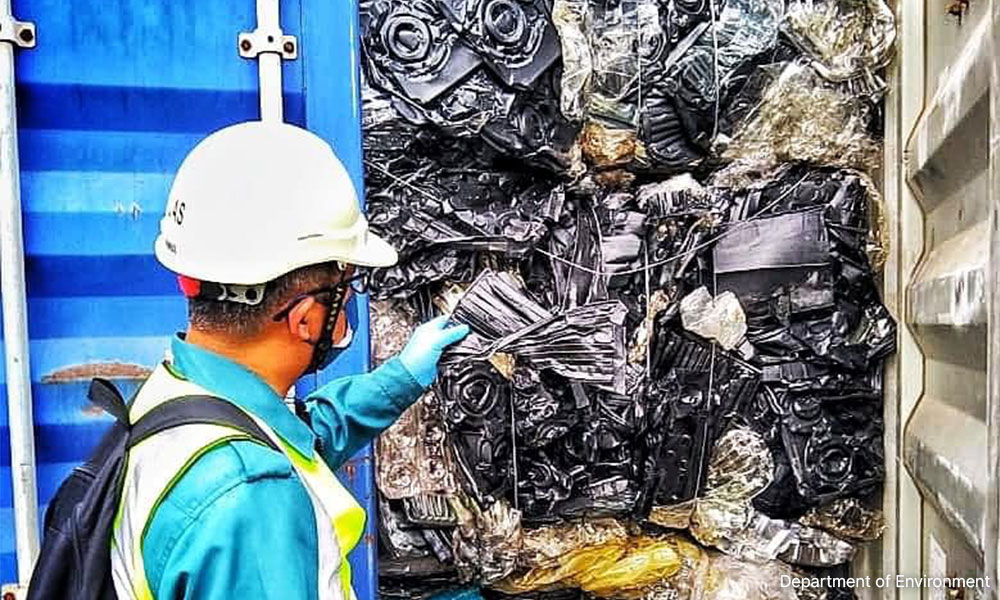
One retired senior Customs officer told Malaysiakini it is difficult to detect the e-waste containers as not all containers are screened before leaving the port.
He said containers of illegal contents are normally only detected whenever the Customs officials conduct random checks and scan containers that are left too long in the port.
“At the same time, it is also impossible to scan each and every container that leaves the port as it costs time and manpower to conduct regular checking.
“When a container is found to hold illegal materials, importers will be charged a fine but many evade the fine by claiming the materials were fraudulently imported in their name.
“It incurs a lot of money for the importers to return the consignments to the country of origin and they wash their hands by saying the consignments do not belong to them,” he said.
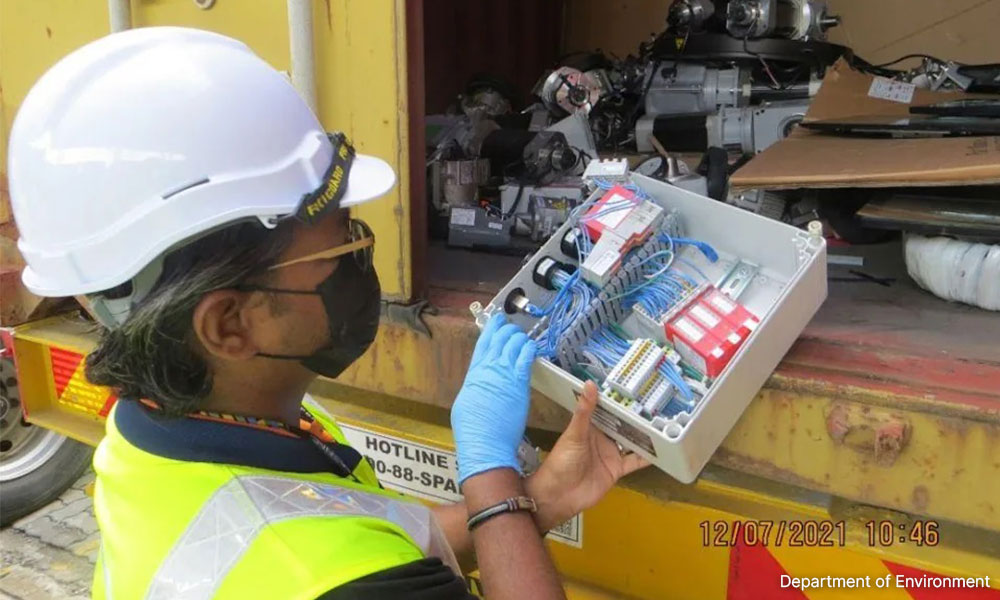
Sources said the Customs Department detected e-waste containers at the NBCT, which had been abandoned for several months, and sought permission from the Ministry of Finance to auction the containers to clear space.
Multiple insider sources confirmed with Malaysiakini that the Customs Department wrote to the Finance Ministry to auction the e-waste containers.
However, when contacted, Penang Port Sdn Bhd (PPSB) CEO Sasedharan Vasudevan denied there were e-waste containers at the port.
Nevertheless, he agreed they have located containers with “wire contents” and the Customs Department had auctioned off those containers.
In July 2021, the Penang Department of Environment (DOE) sent back a container to its origin country, the United States, after it was found to contain e-waste.
The year before, two containers from Japan containing a mixture of plastic and e-waste were intercepted at the NBCT when they went through Customs Department scanners.
When contacted, the Customs Department said it would respond to the questions submitted. Malaysiakini is still awaiting a response.
Many illegal recycling plants
If the smuggled shipments manage to make it out of the ports, they are transported to recycling plants throughout the nation, which are actually not permitted to process imported e-waste, Malaysiakini’s investigations showed.
Segamat in Johor is home to one of the largest illegal recycling plants in the country, employing more than 3,000 foreign workers, sources say.
In Teluk Panglima Garang, Selangor, an aluminium smelting plant operates within an area of at least four hectares, or larger than five football fields, and is causing environmental damage, sources claim.
Industry players and DOE sources, who spoke on condition of anonymity, said the plant’s sizable labour force is made up mostly of Chinese nationals.
Sources say the plants not only pollute the air when they burn the materials, but they also release discharge into the rivers and dump non-recyclable waste in forests.
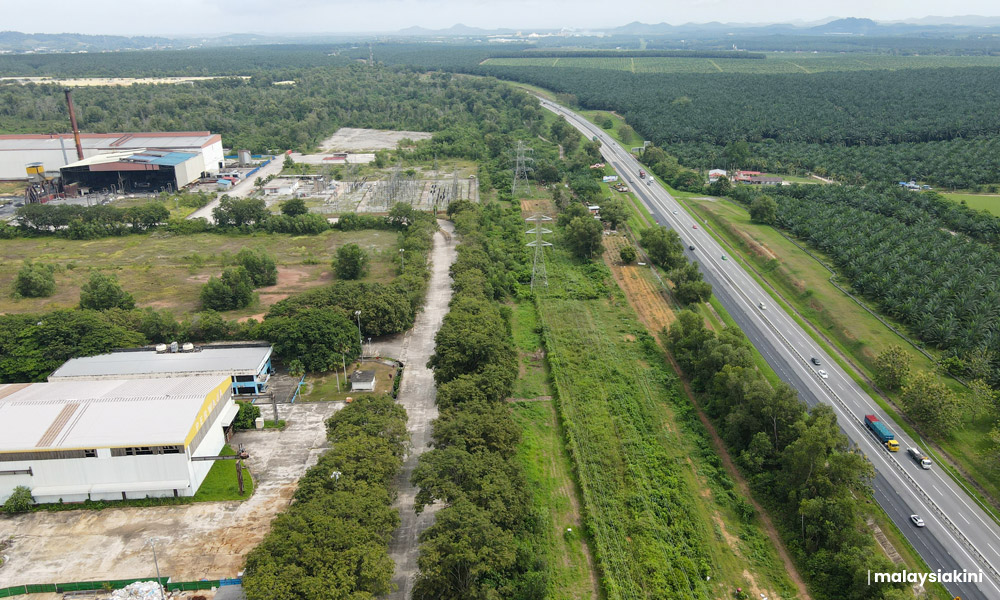
In the northern region, aerial images showed more than a dozen plants in Gurun, Kedah, which are recycling what are believed to be imported e-wastes.
Sources say the plants employ more than 1,000 foreign workers, including about 300 Chinese nationals.
Checks found the plants were involved in extensive open burning and “cooking” of circuit boards, with melting plastics and metal leaving a bad stench in the air.
To remove precious metals, the boards are “cooked” using corrosive materials and acid baths while wires are burned to extract copper.
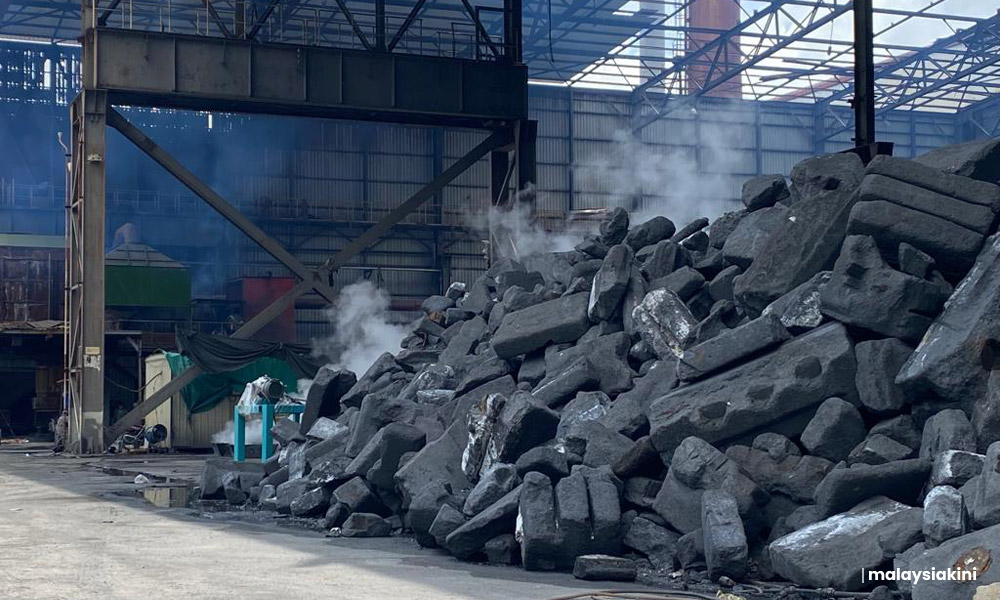
The site is totally barred from outsiders and is closely guarded by security personnel.
But those in the surrounding area told Malaysiakini they could smell burning, cooking, or furnace activities at night.
The Kedah DOE did not respond to questions submitted, but a source in the department told Malaysiakini the plants in Gurun are licenced and permitted to store and transport scraps.
However, they are not licensed to use furnaces or conduct smelting at the plants.
Industry players also questioned why the approved plant is not adhering to safety standards by leaving raw and recovered material in the open.
When Malaysiakini visited the area in September, trucks laden with large bags, believed to be filled with e-waste, were spotted entering the site.
Such bags are often used to transport waste from abroad and are rarely used to move scraps locally, industry players said.
Sources said the workers, imported from China as they had experience in the e-waste recycling process, never left the compound.
Malaysiakini has attempted to contact the company running the plant via phone but the calls went unanswered. Questions were also sent via the company’s enquiry page on its website.
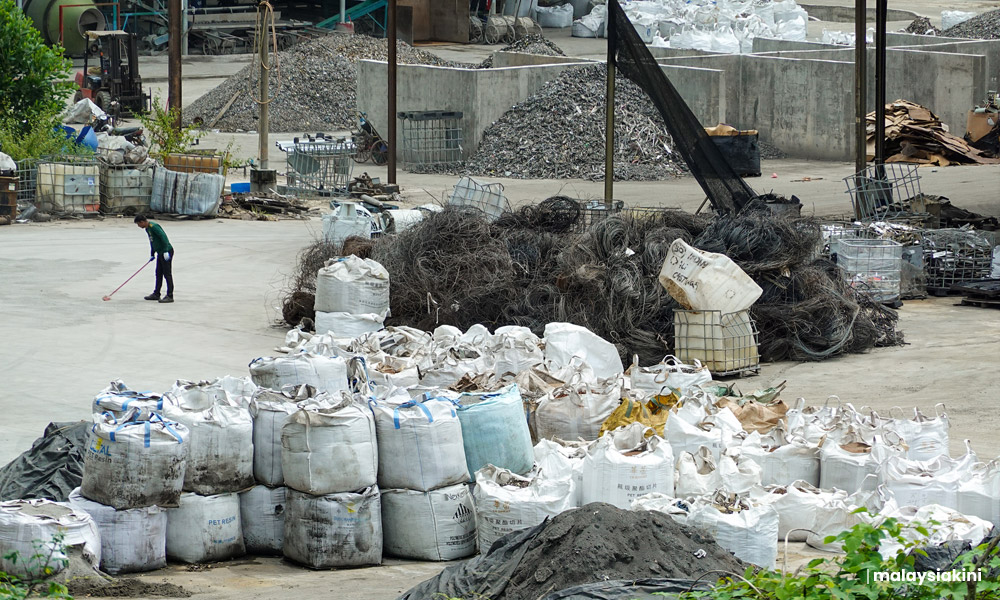
The sources added that the same modus operandi is employed in other illegal recycling operations in Teluk Panglima Garang and Lembah Beringin in Selangor, Bukit Minyak Industrial Estate near Juru, Penang, as well as the Sungai Petani, Bukit Selambau, Taman Ria and Kulim industrial estates in Kedah.
There are also some that operate in secluded areas in various parts of the country, where containers or jumbo bags laden with e-waste are delivered to their doorsteps, they said.
The industry is also growing, with the price of e-waste more than doubling since the trade began in 2018.
At the time, it is learnt the plants paid between RM3,000 to RM6,000 per container.
Today, they pay RM6,000 per 20-foot container and up to RM10,000 for a 40-foot container filled with e-waste, Malaysiakini’s checks revealed.
Smuggled in by air
Penang DOE director Sharifah Zakiah Syed Sahab said the importers used numerous tactics to bring e-waste into the country and to prevent being detected by enforcement authorities.
The latest, she said, was to use flights to smuggle in waste, after surveillance was increased at seaports.
The department discovered this when it raided a factory near Bukit Mertajam in August and seized used cadmium and lithium batteries meant to be recycled at a plastic factory.
The department seized 250 air-cargo containers filled with lithium-cadmium battery waste, which it found was brought into the country by air cargo.
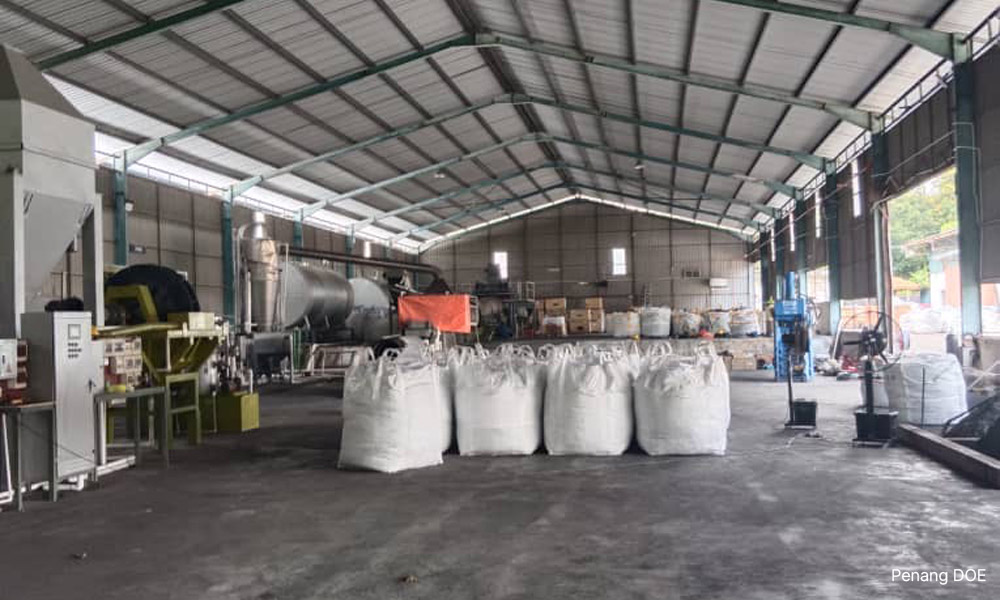
Based on preliminary investigations, the department found the factory was owned by Chinese nationals.
The case is under investigation but if found guilty, the factory owners could be fined up to RM50,000 or imprisoned for up to two years for operating without a licence.
“They import e-waste containers by declaring them as scraps and they wash their hands whenever they are caught or detected by the Customs Department and they use many other ways to obtain the e-waste for their recycling process,” she said when met at her office.
Sharifah said one of the ways was to wait for the Customs Department to auction the abandoned consignments, and appoint agents to bid for the containers.
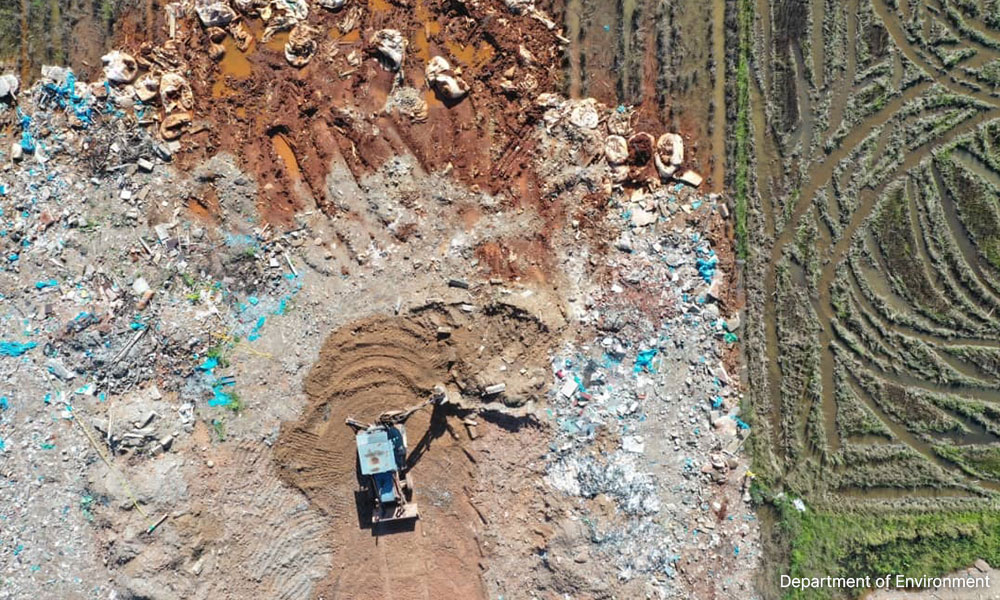
She said it was difficult to trace or detect illegal recycling plants as they operate in secluded areas or in legal plants which have been licensed by local councils for other operations.
“We will act on illegal e-waste operations whenever we are alerted by the public or by neighbourhood NGOs, when the illegal recycling plants release emissions, discharge toxic water and dump the final waste near residential areas,” Sharifah added.
In March, the department spotted an open burning in the middle of paddy fields in Permatang Pauh in mainland Penang, and upon checking discovered the burning of scheduled waste.
She said it showed the syndicates have become desperate and are looking for unconventional avenues to do illegal recycling without being detected.
Calls for legalising e-waste imports
In Malaysia, the import of e-waste is not allowed but recycling of local e-waste can be done.
The practice is regulated by the DOE through the Environmental Quality Regulations (Scheduled Waste) 2005 and Environmental Quality Act 1974.
Recyclers have to comply with strict standards for the production, storage, transport and disposal of e-waste, which are enforced by the DOE.
But, despite the raids, industry players believe e-waste syndicates are working hand-in-glove with some within the enforcement bodies.
Syndicate members have allegedly demanded protection money from some of the operators of illegal factories, in exchange for not exposing them to the authorities.
One industry player observed that this is the only logical explanation of how factories - that hire thousands of undocumented workers - can evade raids when businesses like massage parlours or eateries are regularly checked to ensure workers have permits.
He added that by clamping down on the business of illegal recycling and legalising imports for registered recyclers, the authorities can ensure all wastes imported are dealt with in compliance with standards.
That way, locals can enjoy employment opportunities and a better environment, while the country can generate tax revenue, he said.
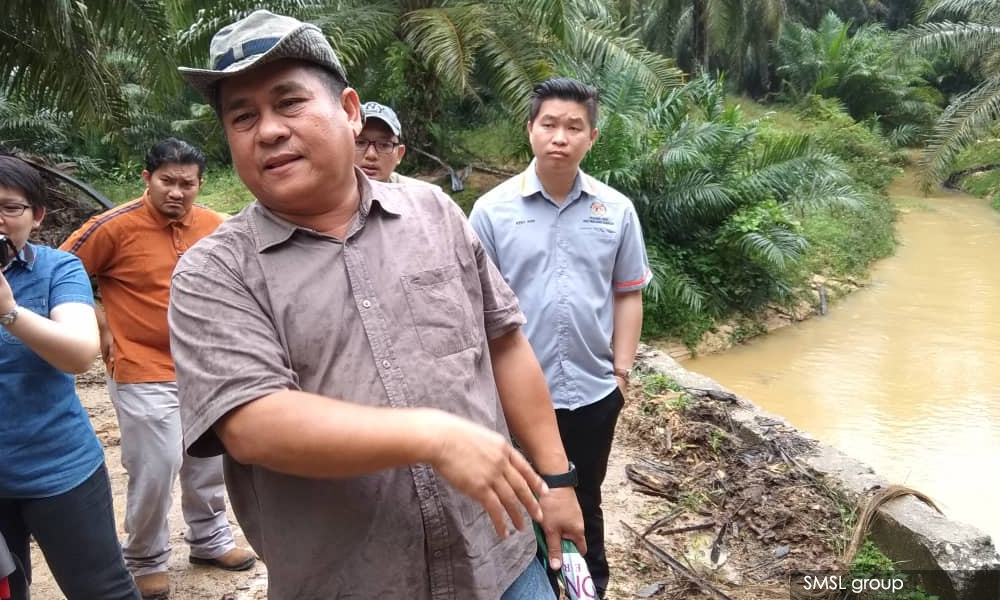
But environmentalist and former Malaysian Nature Society president Maketab Mohamed believes even legalising and regulating e-waste recycling in Malaysia does more harm than good.
Maketab, who is an expert in water quality, said this is because whatever profits earned will not be commensurate with the damage to the environment and people.
China decided to stop recycling the world’s waste when it was found that workers - including children - at the plants were suffering from lead poisoning.
For example, in the rice-producing village of Guiyu, in Guangdong, southeast China, the farming industry failed and the water became toxic due to recycling operations there, while the air was filled with dioxin-laden fumes, the research found.
“Illegal or legal transport of potentially hazardous wastes - to be recycled or not - should not be allowed into our country.
“We should not be the dumping ground of the hazardous (wastes) of other countries, as the burden is not worth the money received.
“Only a small number of our rakyat will benefit (from importing and processing waste) while the impact will be on the whole country for a very long time,” Maketab said.
This story was produced by Malaysiakini with the financial support of the European Union in the form of a grant from Internews Malaysia. Its contents are the sole responsibility of Internews and do not necessarily reflect the views of the European Union.

